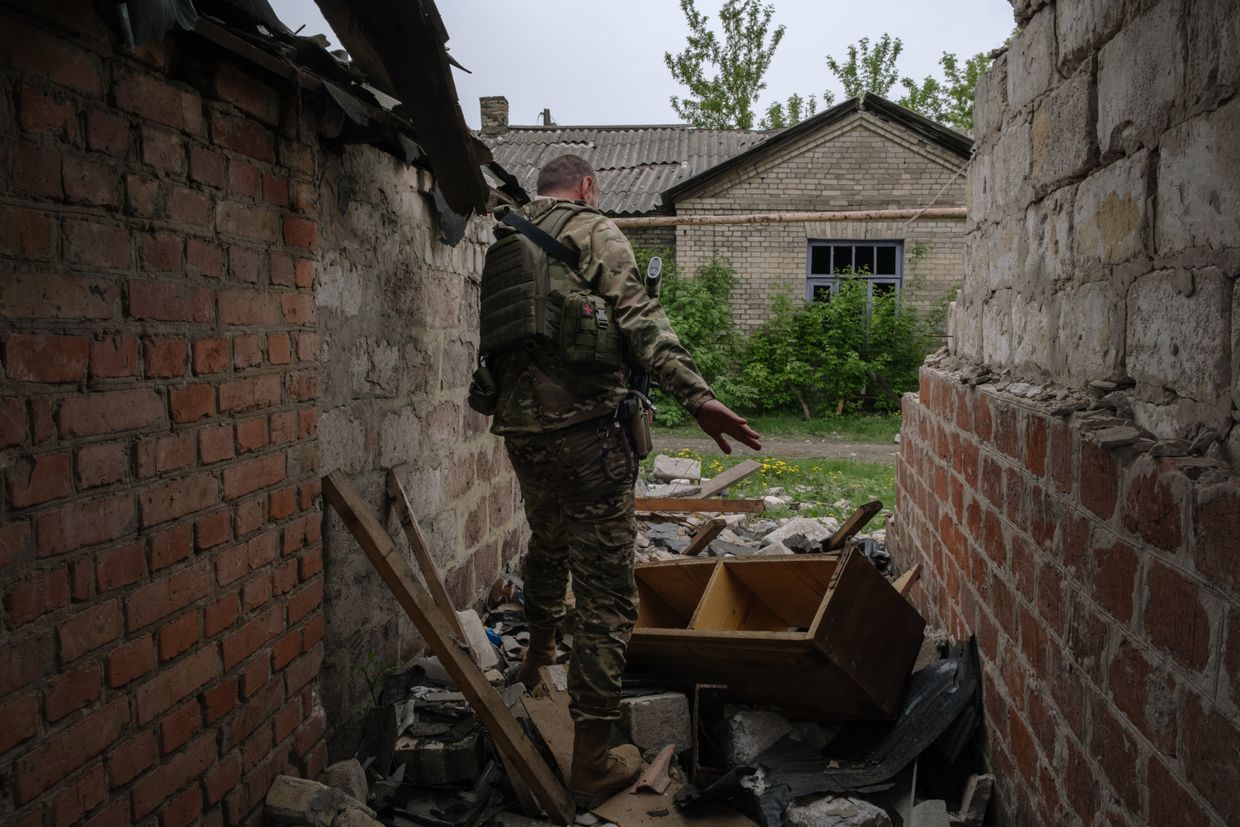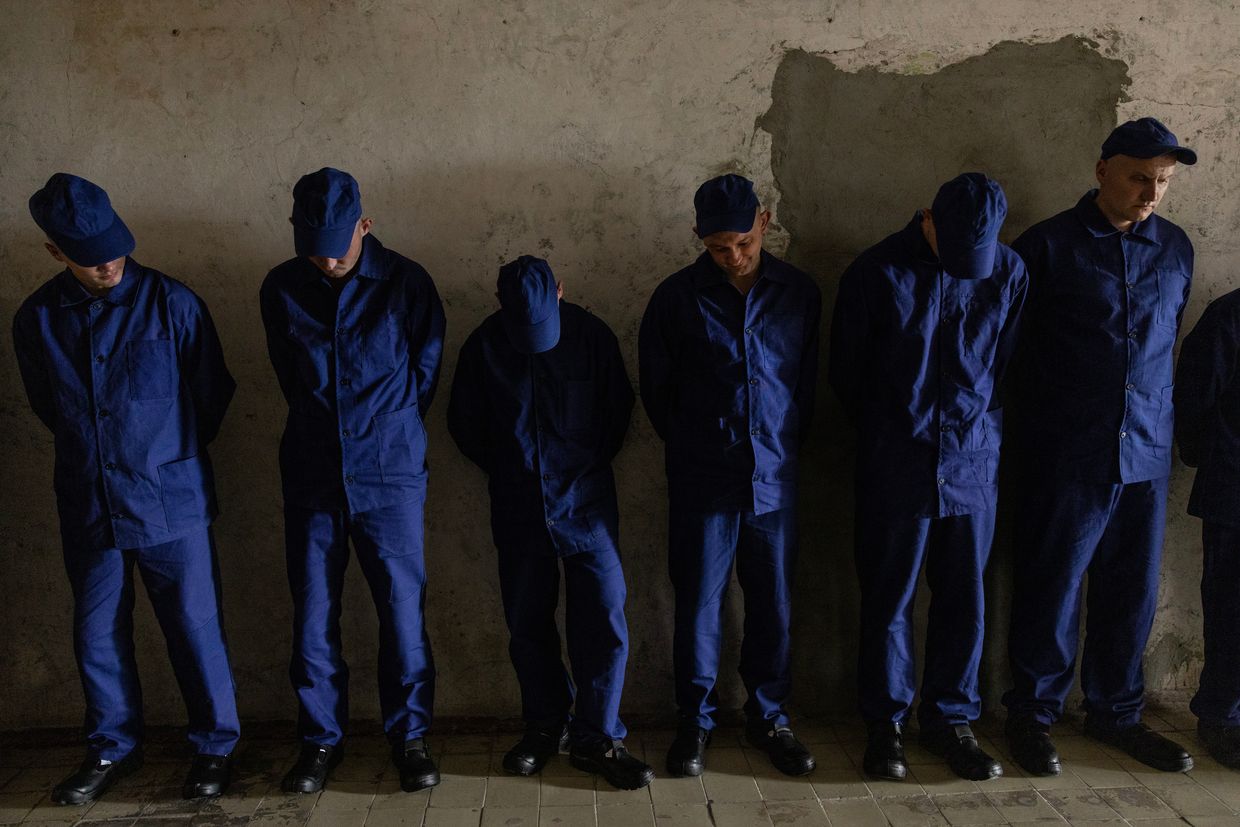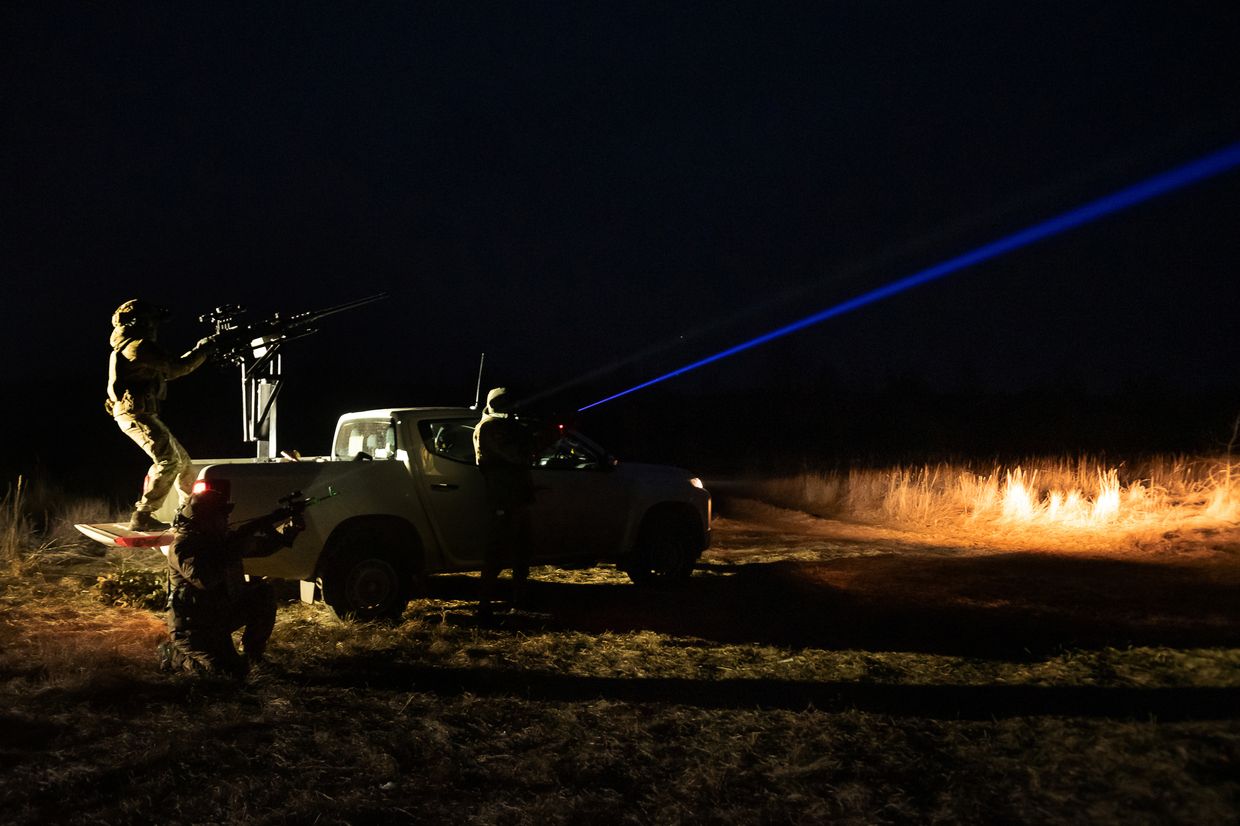Ukraine war latest: US aid will help launch counteroffensive in 2025, Sullivan says

Key developments on May 4-5:
- Zelensky: Ukraine open to all-for-all POW exchange
- 150,000 Russian soldiers killed during full-scale invasion of Ukraine, Paris says
- FT: US aid to Ukraine will help Ukraine launch counteroffensive in 2025, Sullivan says
- Russian glide bomb attack injures 15 in downtown Kharkiv
- Russia lures Cubans to army with offers of high pay, Russian passport
Ukraine will look to launch a counteroffensive in 2025 with the support of the approved $61 billion aid package from the United States, as well as additional Western funding, U.S. National Security Adviser Jake Sullivan told the Financial Times on May 4.
Sullivan echoed Ukraine's hopes that the country will "move forward to recapture the territory that the Russians have taken” - the clearest such articulation as to how the White House sees the war evolving in the coming months.
The Financial Times notes that any new Ukrainian offensive would require additional military aid from Western allies, including the United States. The most recent $61 billion aid package from the U.S. took months to pass through Congress amid political infighting.
The United States is currently leading talks among Group of Seven (G7) countries to develop a military aid package to Ukraine worth up to $50 billion, Bloomberg reported on May 3. The potential package would reportedly be funded by the profits generated by accrued interest on frozen Russian assets.
Despite mounting pressures of an anticipated Russian summer offensive, Sullivan noted that with incoming U.S. weapons, Ukraine will have the capacity to "hold the line" as it faces a difficult period in the war over the next few months.
Last month, in an interview with Germany's Bild magazine, President Volodymyr Zelensky said that while there is a plan for an eventual counteroffensive, any such developments would be contingent on receiving additional aid from Western allies.
150,000 Russian soldiers killed during full-scale invasion of Ukraine, Paris says
France estimates 150,000 Russian troops have been killed since the launch of the full-scale invasion of Ukraine, Foreign Minister Stephane Sejourne said on May 3.
Speaking to Novaya Gazeta Europe, Sejourne said the total losses including injured were 500,000.
"Europe and its partners will remain united and determined, for as long as necessary. Russia's military failure is already apparent," he said, adding: "We estimate Russian military losses at 500,000, including 150,000 deaths.
"All of this for what? This can be summed up in two words: for nothing."
If confirmed, the 150,000 figure is around ten times higher than Soviet loses during the decade-long war in Afghanistan from 1979 until 1989.
Russia itself has not publicly released figures since September 2022, when the official Kremlin death toll stood at just 5,937.
NATO Secretary General Jens Stoltenberg estimated on March 14 that Russia had suffered over 350,000 casualties in Ukraine since the start of Russia's full-scale invasion.
According to Kyiv which releases daily figures, as of May 4, Russia has suffered 473,400 casualties in Ukraine since the beginning of its full-scale invasion, including 1,260 over the last day.
These daily numbers include both dead and injured but in late February, President Volodymyr Zelensky claimed the number of those killed was 180,000.
He also said 31,000 Ukrainian soldiers have lost their lives in the war. Zelensky added that the exact amount is unknown, and it would only be possible to find out once occupied territories were liberated.
Mediazona, a Russian independent media outlet, together with BBC Russia, has confirmed through open-source research the names of over 50,000 Russian soldiers who have been killed fighting in Ukraine since the beginning of Russia's full-scale invasion.
The journalists specify that the actual figures are likely considerably higher since the information they have verified so far comes from public sources, including obituaries, posts by relatives, regional media news, and local authorities' reports.
Since Russia began its all-out war against Ukraine, over 3,300 officers, with 386 holding the rank of Lieutenant Colonel or higher, have been killed in combat in Ukraine.
Ukraine open to all-for-all POW exchange
Ukraine is open to an all-for-all prisoner of war (POW) exchange, and will discuss the idea at the upcoming Peace Summit in Switzerland in June, Zelensky said on May 3.
"It's desired that we swap all-for-all. All reasonable countries support this route," Zelensky told recruits while speaking at the National Academy of the State Border Guard Service of Ukraine. "We are conducting exchanges, but they are slower than we would like."
The last reported prisoner exchange occurred on Feb. 8 with 100 Ukrainian POWs returned from Russian captivity. Before that, on Jan. 3, 230 prisoners were exchanged in the largest prisoner exchange since the start of Russia’s full-scale invasion.

Previously, Moscow had gone months without a POW exchange, refusing to continue the practices in an alleged effort to turn Ukrainian families of POWs against their own authorities.
Zelensky said that despite some believing that an all-for-all was only possible after the end of the war, he hoped that there was "an opportunity to try to make this happen earlier," pointing towards the upcoming peace summit which is being held on June 15-16.
Zelensky noted that Ukraine has three priorities for the Global Peace Summit in Switzerland: energy and nuclear security, free navigation of the Black and Azov seas, and the humanitarian issues of an all-for-all POW exchanges, as well as returning Ukrainian children who have been forcefully deported to Russia.
Russia, the aggressor in the ongoing war, will not be invited to the Peace Summit "at this stage," the Swiss government announced on May 3.

Russia coerces Cubans to fight against Ukraine
Leaked documents reveal that Russia has been coercing Cuban citizens into the Russian army with salaries of approximately $2,000 per month, in addition to offers of a Russian passport within months of signing up, a BBC investigation revealed on May 4.
According to the BBC, hundreds of Cubans have allegedly joined Russia's Armed Forces since the start of the full-scale invasion in February 2022, online leaks reveal.
At least 200 names of Cubans were leaked in September and October 2023 by pro-Ukrainian hackers, with the BBC confirming at least 31 accounts whose names matched leaked records appearing to be in Russia or linked to the Russian army.
The BBC investigation further revealed social media posts suggesting some Cubans are receiving Russian passports within months of signing up for the Armed Forces, a theory that was corroborated by local media reports suggesting that citizenship to newly-recruited Cuban fighters would be granted "in the future."
Other Cubans who have moved to Russia on the prospects of finding work in the construction industry were reportedly instead sent to Ukraine's eastern front. In September 2023, Cuba uncovered a human trafficking ring aimed at recruiting people to fight for Russia, a violation that Cuba's Foreign Affairs Ministry "firmly rejects."
Russia continues to increase its campaign to recruit foreigners in neighboring countries and exploited migrant workers for its war against Ukraine to avoid domestic mobilization. Foreign recruits from Nepal, Cuba, Uzbekistan, Armenia, Kazakhstan, Somalia, as well as additional central Asian and African countries, have served as primary targets for recruitment.
In January, Russian President Vladimir Putin issued a decree allowing foreign nationals who join the Russian Armed Forces to be able to apply for Russian citizenship.
Cuba and Russia, two allies since the start of the Cold War, have reciprocal visa-free travel between the countries, as well as direct flights between Havana and Moscow.
Russian attacks
Russian forces struck a residential area in downtown Kharkiv on May 5, injuring at least 15 people on Orthodox Easter Sunday, according to local authorities.
The Kharkiv Oblast Prosecutor's Office clarified that Russian forces attacked the city with three newly-developed UMPB D-30 SN glide bombs.
Russia typically uses laser-guided or satellite-guided KAB bombs, with payloads ranging from 250 to 1,500 kilograms, against Ukrainian military and civilian targets.
Soviet-era dumb bombs are fitted with cheap gliding kits, allowing them to fly much further and more accurately.
Russia has recently intensified attacks against Kharkiv, using missiles, glide bombs, and kamikaze drones to destroy energy infrastructure and kill civilians.
Meanwhile, Ukrainian air defense units destroyed 23 of the 24 Shahed-type drones that Russia launched overnight, the Air Force reported on May 5.
The Russian drones were launched from the neighbouring Kursk Oblast of Russia, as well as from occupied Crimea.
All of the drones Russia launched were intercepted over Kharkiv, Kherson, and Dnipropetrovsk oblasts. Mobile fire groups of the Ukrainian Air Force were involved in repelling the air attacks.
Russian attacks across Ukraine killed four people and injured 19 over the past day, regional authorities said on May 5.
In recent months, Russian attacks on critical infrastructure have increasingly targeted Ukrainian energy facilities.
Russian strikes against Ukraine's energy infrastructure have cost the state over $1 billion in damage, Energy Minister Herman Halushchenko said on May 5 on national television.
The most damage was caused by the attacks on thermal, and hydro electricity generation facilities. Russian troops have been attacking other energy infrastructure facilities on a daily basis as well, using drones, artillery, and missiles.
In a most recent development, Russian forces struck the Sloviansk Thermal Power Plant in Donetsk Oblast, damaging several sites at the power plant.
















